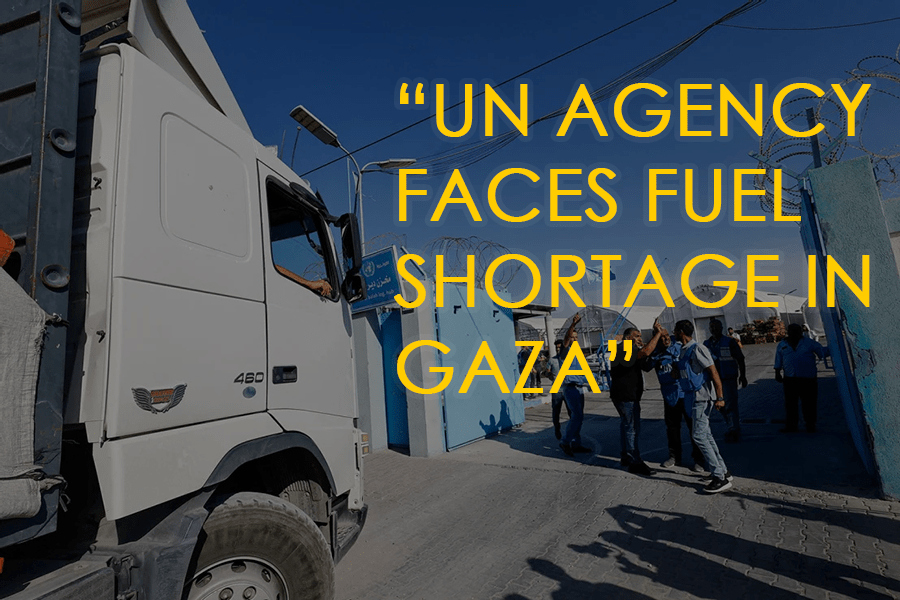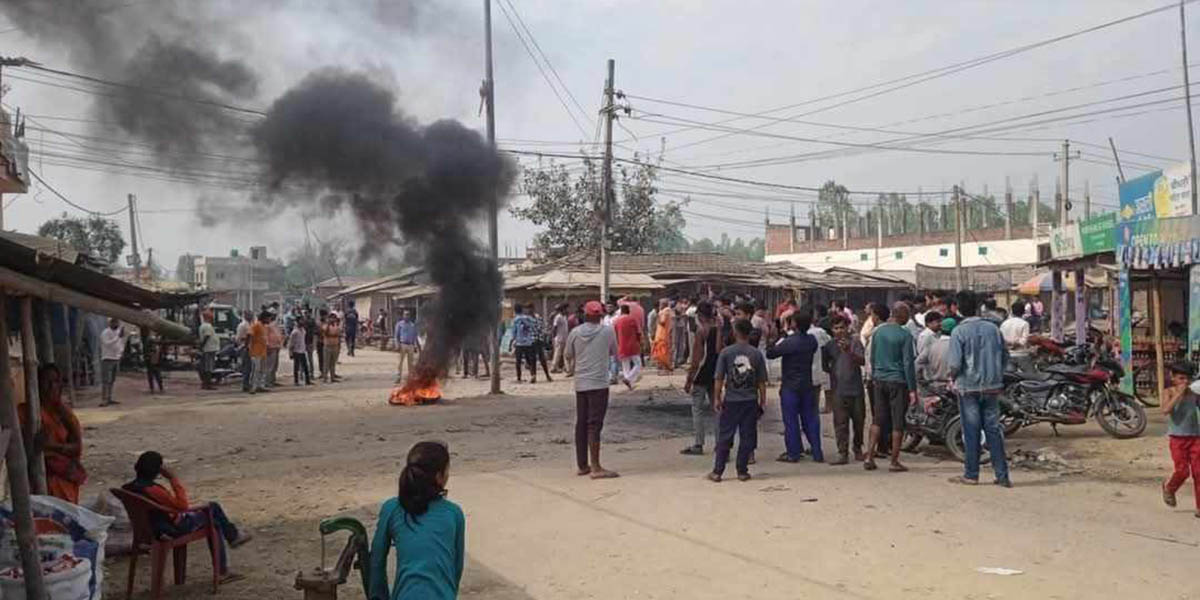Humanitarian Crisis in Gaza Looms as UN Agency Faces Fuel Shortage.

Gaza City, October 26, 2023 – The United Nations Relief and Works Agency for Palestine Refugees in the Near East (UNRWA) has issued a dire warning that its aid operations in Gaza are on the brink of a shutdown, highlighting the severe consequences for the 2 million Palestinians living in the region.
UNRWA, which provides a lifeline for hundreds of thousands of Gazans, has revealed that it could cease operations within a day if crucial fuel supplies are not delivered. The organization's aid efforts have already been hampered by a lack of fuel, and without it, vital services cannot be sustained, leaving the civilian population at risk.
While some aid, including food, water, and medicine, has made its way into Gaza through Egypt, fuel remains a critical missing component. Israel's refusal to allow fuel into Gaza since the brutal attack on October 7 has escalated the crisis, with concerns that it could be used by militant groups for combat.
The UNRWA spokesperson, Tamara Alrifai, told CNN, "We're probably talking a day. We have already warned that if fuel runs out by tonight or tomorrow, we as UNWRA, the largest UN agency in Gaza, will no longer be able to work." Initially, the organization had announced that operations would have to halt Wednesday evening.
UN officials emphasized that the limited supplies that have reached Gaza are insufficient to meet the needs of the 2 million Palestinians living in the region. They further stressed that these supplies would be of little use without the fuel required for distribution.
UN Secretary-General Antonio Guterres warned the UN Security Council, stating, "Without fuel, aid cannot be delivered, hospitals will not have power, and drinking water cannot be purified or even pumped."
Doctors in Gaza's overwhelmed hospitals have repeatedly sounded the alarm, indicating that the lives of patients, particularly those injured in daily bombings and infants dependent on oxygen, hang in the balance if fuel is not delivered promptly.
The UNRWA, currently sheltering approximately 600,000 people in Gaza, plays a pivotal role in providing life-saving assistance. Its director of communications, Juliette Touma, stressed, "UNRWA is their only lifeline."
Tom White, UNRWA director for Gaza, outlined the difficult decisions aid workers will be forced to make, asking, "Do we provide fuel for desalination plants for drinking water? Can we provide fuel to hospitals? Can we provide the essential fuel that is currently producing the bread that is feeding people in Gaza?"
Established in the aftermath of the 1948 Arab-Israeli War, UNRWA's mandate is to offer essential services to Palestinians who were made refugees by the conflict. In addition to humanitarian aid, it provides education to nearly 300,000 students in Gaza. Recent fighting has compelled schools to serve as safe havens for thousands of displaced Gazans.
White warned that fuel shortages could lead to the agency winding down its operations, even as some humanitarian supplies begin to arrive through the Rafah crossing. However, White underlined that without fuel, the agency cannot function effectively.
The deteriorating health environment, lack of sanitation, and consumption of dirty, salty water in Gaza are raising fears of a looming health crisis. As the water system collapses and bombs continue to fall, people could die from dehydration.
In a troubling development, only eight out of 20 aid trucks scheduled to cross into Gaza on Tuesday successfully completed the journey, according to UNRWA. The reasons for the remaining 12 trucks not reaching their destination via the Rafah crossing were not provided.
Over the past two weeks, six hospitals in Gaza have been forced to close due to fuel shortages, according to the World Health Organization. Vulnerable patients, including those dependent on dialysis and premature infants, face grave risks due to unstable electricity supply.
The Israel Defense Forces (IDF) have ruled out allowing fuel into Gaza, citing concerns about its potential use by Hamas for operational purposes and rocket attacks. Israel also disputes claims of fuel shortages, stating that there are substantial fuel reserves in Gaza. CNN has been unable to independently verify these claims.
The recent escalation in the Israel-Hamas conflict has exacted a heavy toll. More than 6,400 people have been killed and 17,000 injured, according to figures from Hamas-controlled health authorities in Gaza and the Palestinian Ministry of Health in Ramallah. Notably, over 700 people, including 305 children, 173 women, and 78 elderly individuals, were killed in Gaza in a single 24-hour period, making it the deadliest day in the conflict so far.
As the crisis deepens, international concern for the well-being of the people of Gaza continues to grow, and efforts to secure fuel supplies remain critical to averting a humanitarian catastrophe.
11 Month Ago
Robbers Loot Jewelry Shop in Mahottari; Traders Sh..
11 Month Ago
Trump and Putin to Discuss Ukraine on Tuesday
YOU MAY ALSO LIKE THIS
Top Free AI Websites in 2025 and Their Key Features
Artificial Intelligence continues to revolutionize how we work, create, and communicate, and 2025 offers an impressive array of fr..
3 Month Ago
2025 Global Entertainment Industry Sees Rising Streaming Subscriptions..
The global entertainment industry in 2025 continues to evolve rapidly with streaming platforms leading the way in reaching new aud..
3 Month Ago
Global Carbon Emissions Hit Record High in 2025 Despite Climate Effort..
In 2025, global carbon dioxide emissions from fossil fuels reached a record high, increasing by 1.1% compared to the previous year..
3 Month Ago

_1763308546.png)
 (1)_1763140461.png)
_1763140142.png)

